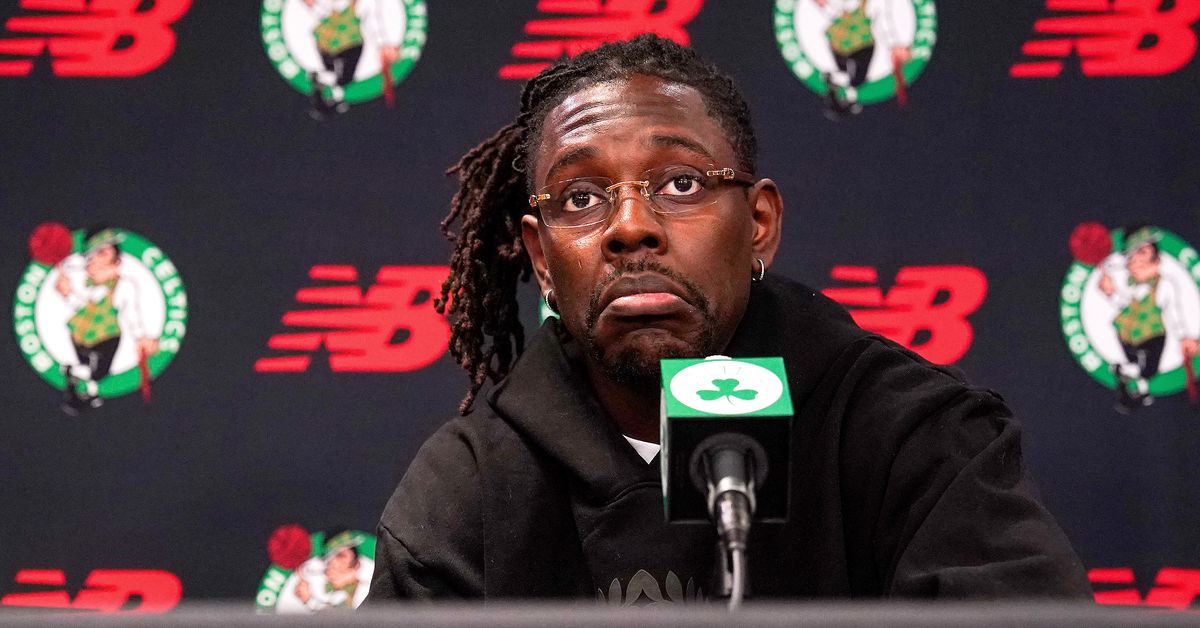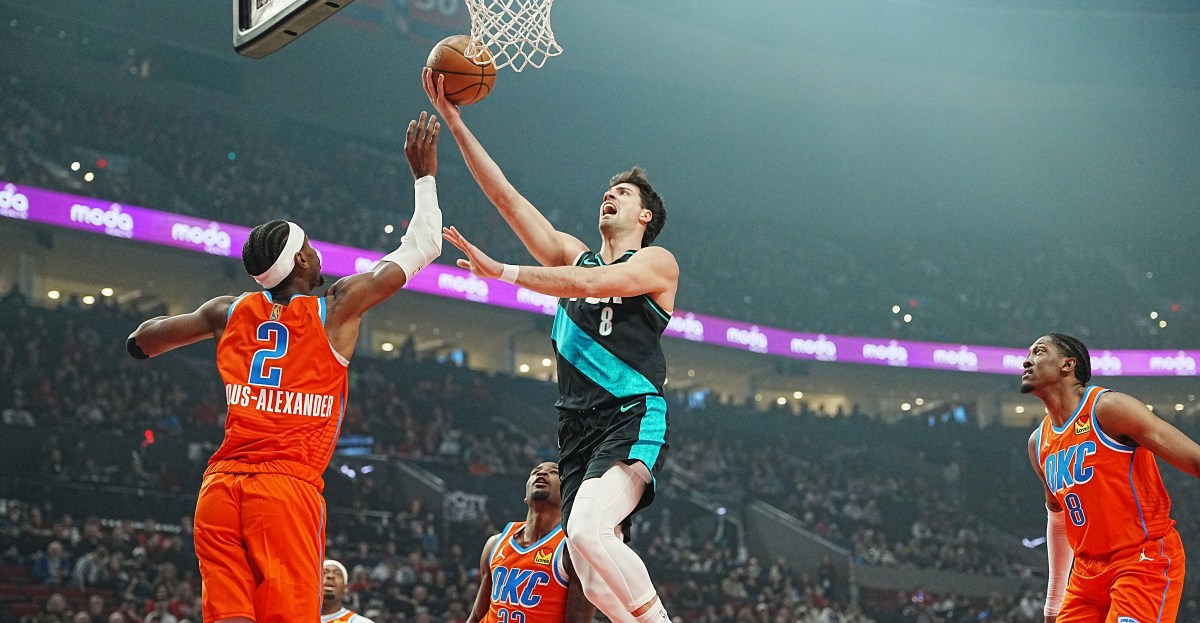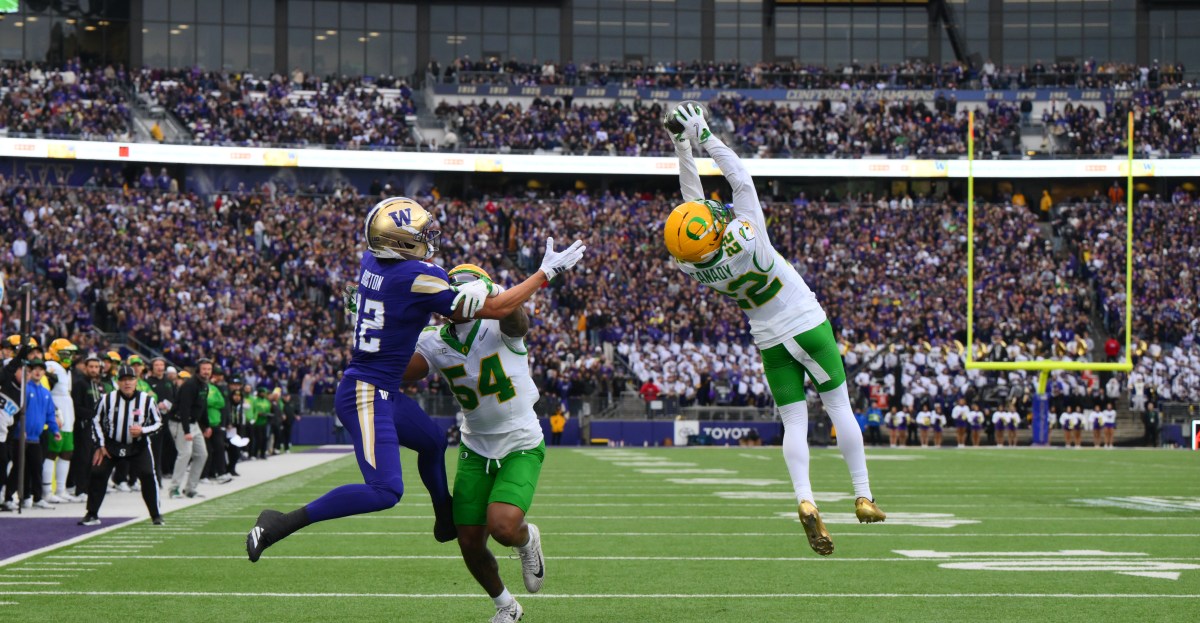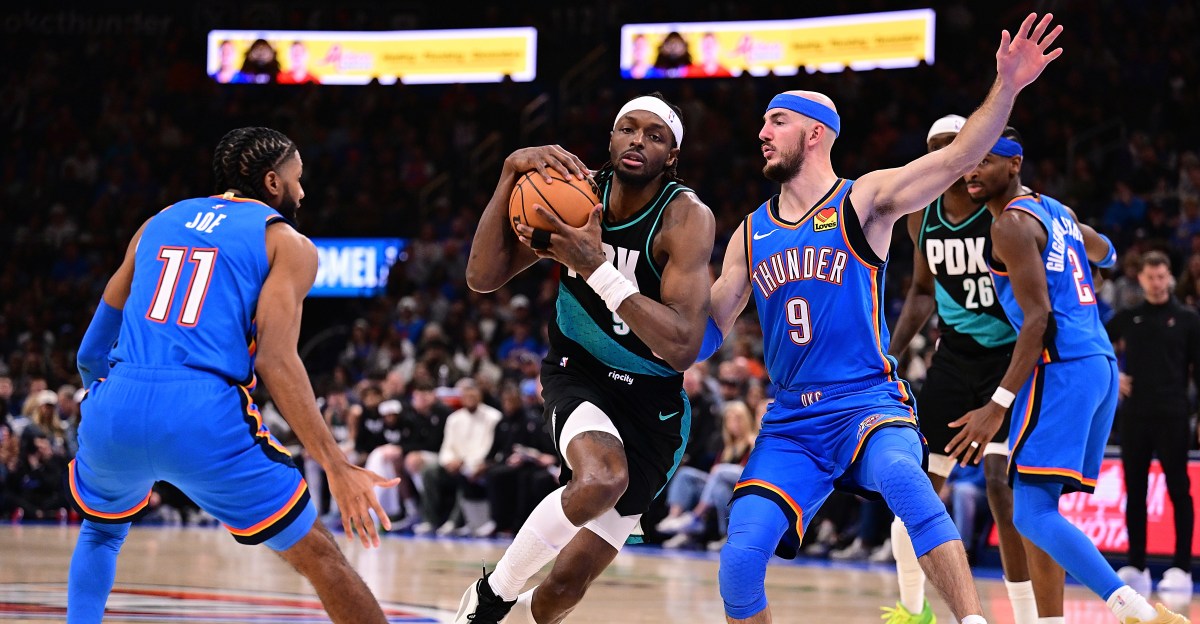Jrue Holiday Trade Looking Even More Suspect for Blazers
Jrue Holiday is a really good NBA player. He’s a two-time NBA All-Star. He’s a two-time World Champion. In a 16-year career he’s made six All-NBA Defensive Teams and received votes for Defensive Player of the Year five times. He’s a heady, hard-nosed guard, an efficient scorer with a good assist-to-turnover ratio. He’s not at the LeBron James/Kevin Durant level of stardom, but if you talk about players who contribute to wins without necessarily occupying the main spotlight, Holiday ranks near the top of the list for his generation.
Normally, acquiring a player of Holiday’s caliber would be a cause for celebration. When the Blazers traded Anfernee Simons for him in the week of the 2025 NBA Draft, the response here was more measured. Portland absorbed a decade of age and more than three times the salary obligation to get Holiday on board. They also reportedly gave up two second-round draft picks for the privilege.
Yesterday, news broke that the exchange would be made without draft picks attached. From that article:
A recent review of Holiday’s medicals showed nothing substantial enough to warrant the trade being negated, but there was enough in the findings to lead the Blazers to change the terms of the deal slightly, a league source confirmed to Blazer’s Edge.
The good news: Portland keeps draft capital.
The bad news: suspect medical reports throw into stark relief all the things that are wrong with this trade. I agreed with a colleague yesterday when we were chatting and they said, “I’d rather lose two second-round picks and have the medical report clear than get them back and have questions about Holiday’s health.” Yupppp.
This is not good news for the Blazers. I’m scratching my head over this deal more now than ever.
Here’s the ideal world for Holiday. He joins a team primed to contend for a championship. He’s perfectly healthy at 35 years of age. He’s not going to play 36 minutes a night, but he can manage 28-32 as needed. He won’t be a star or main scorer, but his defense will help and his shooting numbers will rebound from the levels they dropped to last year (44% from the field, 35% from the three-point arc) to his prior averages of 48% and 43%.
The Portland situation is far from that ideal. Holiday was closer in Boston than he is here.
The Blazers are not in championship contention. Holiday isn’t a natural fit into their timeline, which includes a host of players under four years of experience, all jockeying for playing time, all trying to figure out if they can succeed in this league. Holiday isn’t Portland’s final piece. He, along with forward Jerami Grant, are anomalies. The framework of the puzzle isn’t assembled around them. There’s no place for their piece to fit.
The Blazers need a star. They also need shooting. Holiday can’t be the former. If he tried, he would be taking minutes and shots from those same young players that the Blazers are trying to grow. The latter remains to be seen. If he gets back to 43% three-point shooting, that’s going to be an asset for the team. If he shoots 35% like last year, he’s not going to do anything offensively that other players aren’t already doing. His defense will always be useful, but the Blazers were already far better at defense than offense before the Holiday trade. Holiday adds something Portland was already doing reasonably well (for them) despite their losing. That doesn’t mean they’re going to win more.
Not only is Holiday 35 and a complementary player on a team that doesn’t need complements yet, he’s going to be paid between $32-37 million a year over the next three seasons. That’s about 23% of the salary cap, a decent number for a solid starter. We don’t know whether Holiday will start or come off the bench, though. Both approaches have flaws: crowding out young players or paying exorbitantly for a bench guy.
And now we find there’s something janky enough in the medical reports on the mid-30’s guard to cause the Blazers to reduce their compensation to the Celtics and for Boston to agree to same.
This trade is already confusing, just looking at the coming year and the maximum possible output for Holiday. The Blazers are hoping for a bounce-back season that will bring a few more wins and help show the way to the team’s young players. $100 million is a hefty price to pay for that, but fine.
The idea of Holiday having medical issues, not being able to bounce back at all, and maybe not playing much two and three years down the road when the Blazers are forking over $35 million for the privilege of having him in uniform has the potential to make this move a disaster. It’s exactly the kind of deal that makes you look back three seasons from now and say, “What WERE they thinking?”
Diminished health and diminished performance would mean diminished playing time. Diminished playing time means less impact on wins and losses. It also means less ability to mentor, half the point of the Holiday trade.
Players lead on the court. Holiday’s value to his younger teammates, if it manifests, will come when he provides an example of energetic and efficient play, strong defense, and—as a point guard—when he sets them up on offense to succeed. If he’s 35-38 and healthy, maybe he can do those things. If he’s 35-38 and hurt (or even slowed appreciably) it’s not going to happen.
If Holiday can’t play real, productive minutes, his mentorship role becomes muted. The league is full of examples of elder statesmen in the locker room, influencing young players through professionalism and peer-to-peer coaching. Holiday might be quite good at that. But that’s something you pay a veteran’s minimum for, not $35 million a year. If that’s the plan, they’re overpaying by a factor of 10.
Finally, and just as critically, if the Blazers were looking to get a little juice out of Holiday and then trade him, these medical reports would surely impact that. We’d need to see a huge resurgence from Holiday at the beginning of the season to make that practical. If that doesn’t happen, he’s probably going to be a burden on the cap ledger, just as Grant is threatening to become.
Let’s repeat what we said at the very top of this article.
Jrue Holiday is a really good NBA player. He’s a two-time NBA All-Star. He’s a two-time World Champion. In a 16-year career he’s made six All-NBA Defensive Teams and received votes for Defensive Player of the Year five times. He’s a heady, hard-nosed guard, an efficient scorer with a good assist-to-turnover ratio. He’s not at the LeBron James/Kevin Durant level of stardom, but if you talk about players who contribute to wins without necessarily occupying the main spotlight, Holiday ranks near the top of the list for his generation.
None of that changes the fact that everything about this trade is feeling snakebit from the jump.
Sometimes you can look at a deal and say, “The bar for this is low. If the player does X, Y, or Z, it’s already justified itself.” This move is the exact opposite. There’s no way Holiday lifts the Blazers anywhere near contention this season. There won’t be an instant reward that ends up mattering beyond the moment. We’re going to be weighing this trade for the full three-year duration of Holiday’s contract or until the Blazers trade him.
Now, with these medical reports, it seems unlikely that he’s going to become Classic Jrue for the next three years and equally unlikely that Portland will be able to unload him. The two clearest positive outcomes seem farther away than ever, while the obligations remain in full force.
No matter what you think of Anfernee Simons, the Blazers had the ability to set down that burden after one more season. There’s a decent chance that, in the Year of Our Lord 2028, we’re still going to be dealing with the Jrue Holiday question. If we’re having an honest debate about the pros and cons at that point, the Blazers will have done well. At least that means he did something worth discussing. The question we don’t want to be asking is, “Why are we even having this debate in the first place? This deal shouldn’t have ever happened.”
The best trades allow underused or marginal incoming players to become more than they were in a new environment. That’s what the Blazers have done with Toumani Camara and Deni Avdija. Converting one of the league’s steadiest and best players into a cap paperweight because of the environment would be the opposite of that.
Maybe the Blazers have hidden cards or further moves that make this Jrue Holiday trade make more sense. Maybe Jrue himself is poised on the brink of a career resurgence, a last flash of the lightbulb before burning out and heading off into the coaching or front office ranks. Leaving space for those possibilities is smart. But if nothing further develops to change the situation, the Blazers might be wishing they had made a different decision on this one a couple years down the road.
Sometimes being a good player isn’t enough. When age, injuries, and the needs of your team are all stacked against you, it’s hard to show who you are, let alone become who everyone hoped you’d be. Let’s hope that doesn’t become Jrue Holiday’s epitaph in Portland. We’ll see.
Share this content:















Post Comment